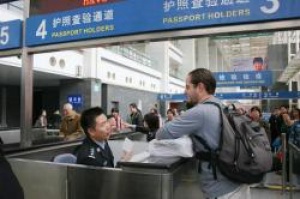Tourism in China contributes more to GDP than automotive manufacturing

The travel and tourism industry in China is substantially bigger than automotive manufacturing and supports almost as many jobs as the mining sector. This is according to new research from the World Travel&Tourism Council (WTTC) sponsored by American Express, released today during a speech by WTTC’s President&CEO, David Scowsill, at the “International Tourism Industry Expo” in Guangdong, China.
The research, undertaken by Oxford Economics, shows that the sector’s direct contribution to China’s GDP is CNY1.2 trillion, which is 13% more than the contribution to the GDP of automotive manufacturing and larger than communications services and the education sector.
Travel and tourism’s total contribution to GDP in China was around 9% of total GDP. This compares to 8% for automotive manufacturing, 7% for education, and 5% for communications services.
With 62 million direct, indirect, and induced jobs in China, travel and tourism supports more jobs than the financial service sector’s 48.5 million.
The new research also showed that travel and tourism’s contribution to GDP is growing faster than most other sectors in China. It will grow by more than 9% over the next ten years, a faster growth rate than the total economy (7.6%).
ADVERTISEMENT
It highlights that travel and tourism is a significant source of exports for revenue for China. In 2011, visitor exports totaled over CNY 300 billion, which was 27% of all service exports and 2% of all exports (including goods and services).
The study also compared the effect of travel and tourism spending on GDP and the wider economy.
In China, CNY6.4 million (US$1 million) in travel and tourism spending:
• generates CNY8.9 million ($1.4 million) in GDP, which is greater than all studied industry sectors except for education
• generates CNY959,000 ($150,000) in the agriculture sector
• generates CNY425,000 ($67,000) of gross value added in the transport and storage sector
• supports 144 jobs, which is more than financial services (93 jobs), auto manufacturing (83 jobs), and communications services (83 jobs)
David Scowsill said: “These numbers are extremely significant. For over 20 years, the World Travel&Tourism Council has spearheaded global and regional analysis of the economic impact of travel and tourism. WTTC has now taken this research one step further and assessed the role travel and tourism plays in the economy of China in comparison to other economic sectors and also how this looks like on a regional level.
The results are extraordinary. Within our industry, we have always known that travel and tourism is a vast contributor to economic growth and job creation. These figures bear out just how significant our industry is for China, especially at a time where China’s manufacturing index hit a nine-month low, and as a result the economy shows signs of slowing, travel and tourism should be used as a stimulator for economic growth.”
Bill Glenn, President, Global Corporate Payments and Business Travel, American Express said: “With each release of regional data from the latest WTTC research, we continue to see the value that travel can bring to GDP, job creation, and other economic factors. We are pleased to sponsor this research and provide the industry with another valuable asset to use to promote the benefits of travel.”
At WTTC’s Global Summit in Tokyo in April, WTTC’s research revealed that travel and tourism’s direct contribution to world GDP of US$2 trillion or 2.8% is more than double the GDP of automotive manufacturing and one-third larger than the global chemicals industry. Travel and tourism generates roughly the same GDP as the global education and communications sectors, and about half that of the global banking and financial services industry.

